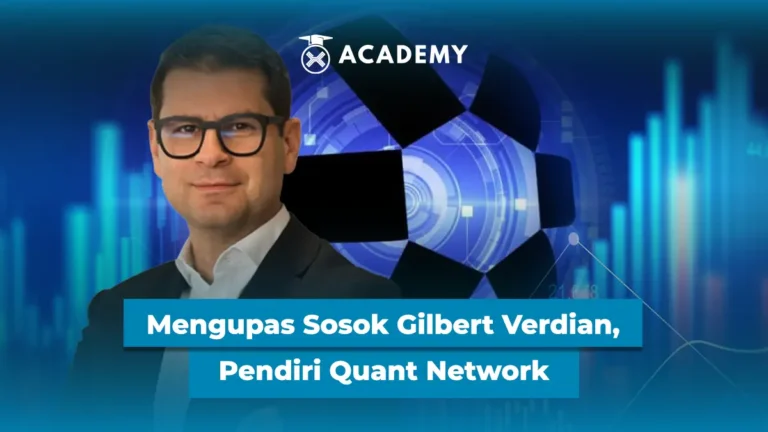Blockchain memang teknologi yang revolusioner. the burden it must bear continues to increase, from executing smart contracts, processing analytical data, to integrating with artificial intelligence.
The challenge? Blockchain has limitations: its processes are slow, costly, and less than ideal for complex computations.
This is the reason for the ZK Coprocessor. This technology is designed to help blockchains focus on their core functions, while heavy computation is handled externally, without sacrificing security or trust.
So, what exactly is the ZK Coprocessor? To learn more about this technology, let’s take a look at the following review!
What is the ZK Coprocessor?
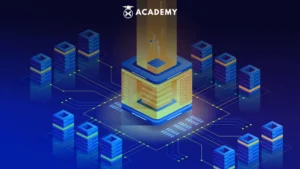
The ZK Coprocessor is an additional computational module that performs complex tasks off-chain, then sends zero-knowledge proofs (ZKPs) to the chain for verification.
In other words, the blockchain doesn’t need to perform all the heavy calculations itself; it simply receives the final result in the form of a valid and concise proof.
To visualize this, think of the blockchain as a large, shared computer that records and verifies transactions.
However, just as modern computers are assisted by GPUs for graphics processing, the blockchain can delegate some of its computational tasks to the ZK Coprocessor. This is where the efficiency begins to be realized.
The ZK Coprocessor acts as an “assistant” to the blockchain. Heavy computations such as data analysis, AI model inference, or complex smart contract calculations are executed off-chain, and the results are packaged in a ZKP.
The blockchain only needs to verify these proofs, without needing to know the entire process or the raw data.
This approach allows the blockchain to remain lightweight and efficient, while maintaining the security and integrity of the computational results. This technology is key to driving blockchain scalability without sacrificing trust.
Why Does Blockchain Need a ZK Coprocessor?
As blockchain usage increases, challenges such as computational burden, privacy issues, and scalability limitations become increasingly apparent.
To address these challenges, the ZK Coprocessor is introduced, an external component that uses Zero-Knowledge Proof (ZK Proof) to help blockchains become more efficient. Here are three main reasons why this technology is needed:
1. Computational Efficiency
The blockchain no longer needs to process all the heavy calculations within the network. The ZK Coprocessor handles complex tasks off-chain and only sends the final result in the form of a lightweight proof to the blockchain.
This reduces the workload, speeds up processes, and maintains optimal network performance.
2. Improved Privacy
With ZK Proof, the system can prove the validity of data or processes without revealing the details.
This means users can maintain the confidentiality of data, whether in transactions, contracts, or identities, without compromising the trustworthiness or validity of the results.
3. High Scalability
Because most processes are performed off-chain, gas consumption is drastically reduced. This enables higher throughput and significantly cheaper transactions, which are crucial for the mass development of DeFi applications, NFTs, and other Web3 solutions.
How the ZK Coprocessor Works
The ZK Coprocessor is designed to handle computationally demanding processes that would be too demanding to be performed directly on the blockchain. Its work process begins by retrieving the required data from transaction history or relevant blockchain data.
This data forms the basis for running the necessary calculations off-chain, i.e., outside the main blockchain network.
Once all inputs are collected, the calculations are broken down into smaller, more manageable parts. Each part is executed separately, and the results are then reassembled into a single whole.
Once all the results are ready, the ZK Coprocessor generates a Zero-Knowledge Proof (ZKP) that proves the entire process was carried out correctly, without revealing any details of the data or the steps involved.
This proof generation process is decentralized, with a network of provers competing to produce the fastest and most accurate proof. Once the proof is ready, it is sent to the main blockchain for verification via a smart contract.
Blockchains don’t need to repeat the calculation process because simply by verifying the proof, the system can ensure that the results are valid and unfazed. This way, the blockchain’s workload is reduced while maintaining trust in the calculation results.
This entire process allows blockchains to perform complex tasks efficiently and securely, while still acting as the final verifier.
Projects Already Using the ZK Coprocessor
A number of leading Web3 projects have begun utilizing ZK Coprocessor technology to boost their system performance, maintain data privacy, and improve network scalability. Here are some examples:
1. Lagrange Labs
Lagrange Labs uses the ZK Coprocessor to enable users to run SQL queries directly against Ethereum data.
The query results are then packaged as ZK Proofs, allowing them to be verified on-chain without exposing the raw data.
2. Axiom.xyz
Axiom.xyz builds a logic engine on top of the blockchain that utilizes Zero-Knowledge Proofs to automate data processing.
This project enables smart contracts to make decisions based on on-chain data securely and efficiently without leaking detailed information.
3. RISC Zero (Bonsai)
RISC Zero (Bonsai) offers a unique solution where users can run AI models or Python scripts off-chain and then submit the results to the blockchain in the form of ZK Proofs.
This opens up new opportunities for integrating edge computing into the blockchain ecosystem.
4. Space and Time
Space and Time provides a real-time Web3 database infrastructure equipped with ZK-based verification.
This approach allows database queries to be cryptographically proven, making it a suitable solution for decentralized and transparent data needs.
Essentially, this entire project demonstrates how the ZK Coprocessor can expand the limitations of traditional blockchains, delivering faster performance, lower costs, and enhanced data security.
The Difference Between the ZK Coprocessor and ZKVM & ZK Rollup
In the Zero-Knowledge Proof-based blockchain ecosystem, several different approaches are used to improve system efficiency and security.
Three key components that are often discussed are the ZK Coprocessor, ZKVM, and ZK Rollup. Although all three use the ZK principle, their functions are not identical. Here’s an explanation:
1. ZK Coprocessor
The ZK Coprocessor is designed to run complex computational processes off-chain, outside the main blockchain network.
Once the process is complete, the coprocessor packages the results in the form of a ZK Proof and sends it to the blockchain for verification.
Because it runs off-chain, the coprocessor is well-suited for handling heavy logic or data analysis without burdening the main network.
2. ZKVM
ZKVM (Zero-Knowledge Virtual Machine) is a virtual machine that runs on-chain and natively supports Zero-Knowledge Proof. This means that all calculations are still performed within the blockchain, despite the advantages of ZK verification.
However, because it still operates within the main network, ZKVM tends to be more demanding than a coprocessor in terms of performance and resources.
3. ZK Rollup
ZK Rollup focuses on bundling multiple transactions into a single package that is validated using ZK Proof.
Rollup accelerates throughput and lowers costs, but its focus is on validating state changes (e.g., account balances), rather than executing logic or complex calculations.
While the three functions differ, the ZK Coprocessor is not a competitor to ZKVM or ZK Rollup. Instead, it complements them. In this sense, the coprocessor handles heavy computation off-chain, ZK Rollup optimizes transaction efficiency, and ZKVM ensures logic execution with cryptographic verification.
Risks and Challenges of This Technology
While the ZK Coprocessor offers many advantages such as efficiency, privacy, and scalability, it still faces several challenges that require attention in its implementation.
One major obstacle is the process of generating ZK Proofs, which is still relatively computationally intensive.
While there have been many advances in efficiency, this process still requires significant resources and is not instantaneous, especially for complex tasks.
Furthermore, the available tooling is not yet fully standardized across all ecosystems.
Each project tends to build its own tools, so interoperability between platforms remains limited and can complicate developers who want to migrate or build across chains.
Integration with other blockchains is not yet entirely seamless. The ZK Coprocessor still requires additional bridges and verification, which can hinder cross-chain adoption.
Equally important, the learning curve remains quite steep, especially for Web3 developers unfamiliar with advanced cryptography or ZK systems.
In this regard, building and understanding ZK-based systems requires a deep understanding that cannot be learned instantly.
However, all of these challenges are actually quite reasonable. ZK Coprocessor technology is still relatively new and is developing rapidly.
Over time, the ecosystem will mature, with tooling becoming more standardized, documentation becoming more comprehensive, and cross-chain integration becoming more seamless. This is essentially a natural process in the evolution of new technology.
The Future: AI, Big Data, and Modular Blockchain
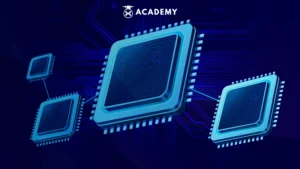
The ZK Coprocessor has the potential to become a key foundation for the next wave of Web3 innovation.
With its ability to run complex computations off-chain and send results in lightweight, secure proofs, this technology opens up significant opportunities in various fields.
For example, AI integration through zkML allows machine learning models to be run off-chain and their results verified directly by smart contracts, bringing artificial intelligence into blockchain logic without sacrificing privacy or performance.
The ZK Coprocessor can also execute big data and cross-chain queries, efficiently processing large-scale information from multiple blockchain sources.
This is particularly useful for DePIN, IoT, and AI-based oracle projects, which require real-time data and secure validation at scale.
In a modular blockchain architecture, the ZK Coprocessor acts as a flexible external computation layer that can be connected to multiple chains, strengthening the overall system’s adaptability.
Given its potential, the ZK Coprocessor is not just a complement but will likely become the new standard for next-generation Web3 applications, connecting the worlds of blockchain, AI, and data efficiently and securely.
Conclusion: ZK Coprocessor, Blockchain’s Second Brain
So, that was an interesting discussion about the ZK Coprocessor, which you can read in full at the INDODAX Academy’s Crypto Academy.
In conclusion, the ZK Coprocessor is not just an additional feature, but rather a concrete answer to the various limitations of today’s blockchains.
With a modular approach, off-chain computation, and verification via Zero-Knowledge Proof, this technology enables blockchains to handle heavy loads, from AI and big data to cross-chain automation, efficiently, privately, and scalably.
You could say that the ZK Coprocessor is an “extra brain” that makes blockchains ready to face future computing challenges.
And besides broadening your investment horizons, you can also stay updated with the latest crypto news and monitor digital asset price movements directly on the INDODAX Market. Don’t forget to activate notifications to stay up-to-date with the latest information about digital assets and blockchain technology, only on INDODAX Academy.
You can also follow our latest news via Google News for faster and more reliable access to information. For an easy and secure trading experience, download the best crypto app from INDODAX on the App Store or Google Play Store.
Also maximize your crypto assets with the INDODAX Earn, feature, a practical way to earn passive income from your holdings.
Also follow our social media here: Instagram, X, Youtube & Telegram
FAQ
1.What is a ZK Coprocessor?
A ZK Coprocessor is an additional component that performs heavy off-chain processing and sends the results in the form of Zero-Knowledge Proofs to the blockchain for validation.
2.What are the main benefits of a ZK Coprocessor?
It improves blockchain efficiency, privacy, and scalability. It is suitable for complex smart contracts, AI, and big data.
3.What is the difference between a ZK Coprocessor and a ZK Rollup?
ZK Rollups focus on transaction bundling, while ZK Coprocessors focus on complex off-chain computations.
4.Examples of projects that use ZK Coprocessors?
Lagrange Labs, Axiom, RISC Zero, and Space and Time.
5.Is this technology suitable for AI in Web3?
Absolutely. Several projects are already using ZK Coprocessors for AI inference and off-chain data combination.
Author: Boy




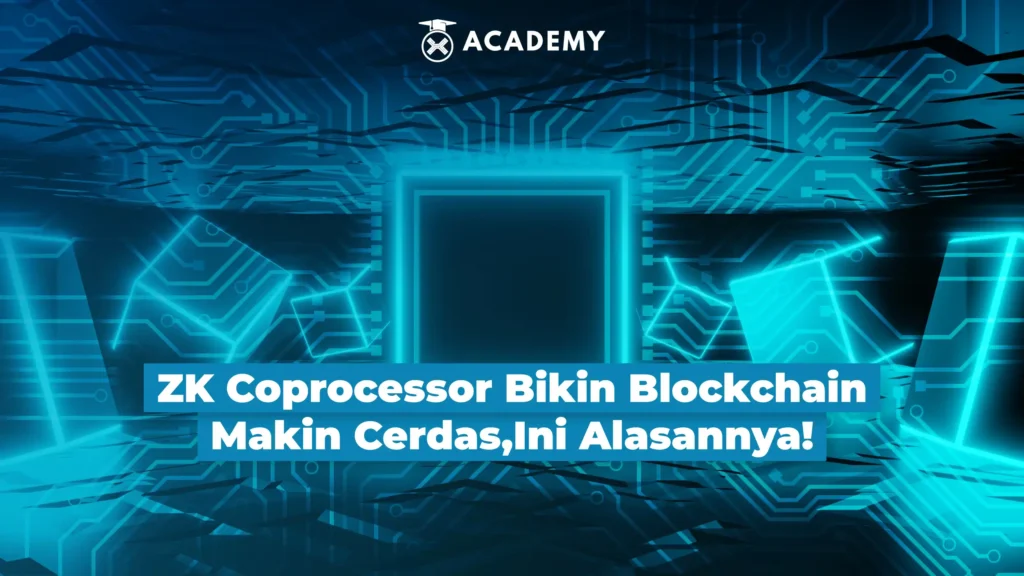

 Polkadot 9.00%
Polkadot 9.00%
 BNB 0.51%
BNB 0.51%
 Solana 4.77%
Solana 4.77%
 Ethereum 2.37%
Ethereum 2.37%
 Cardano 1.58%
Cardano 1.58%
 Polygon Ecosystem Token 2.11%
Polygon Ecosystem Token 2.11%
 Tron 2.85%
Tron 2.85%
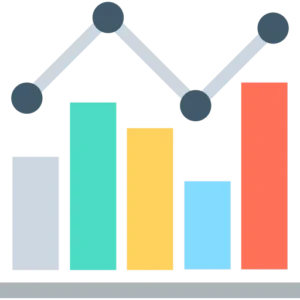 Market
Market
